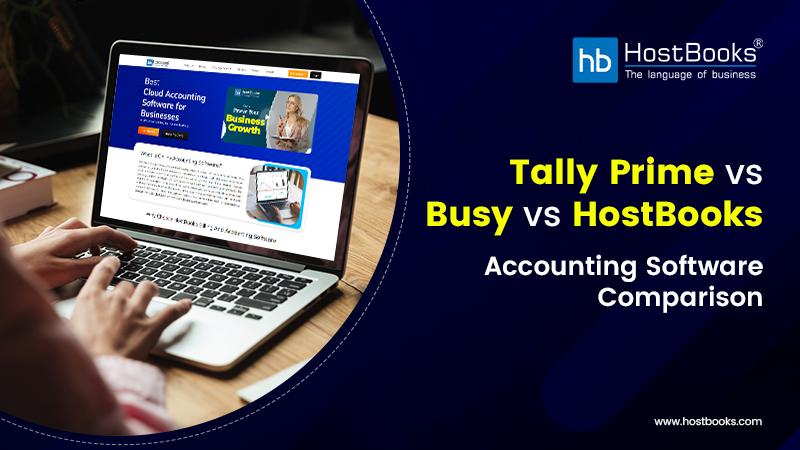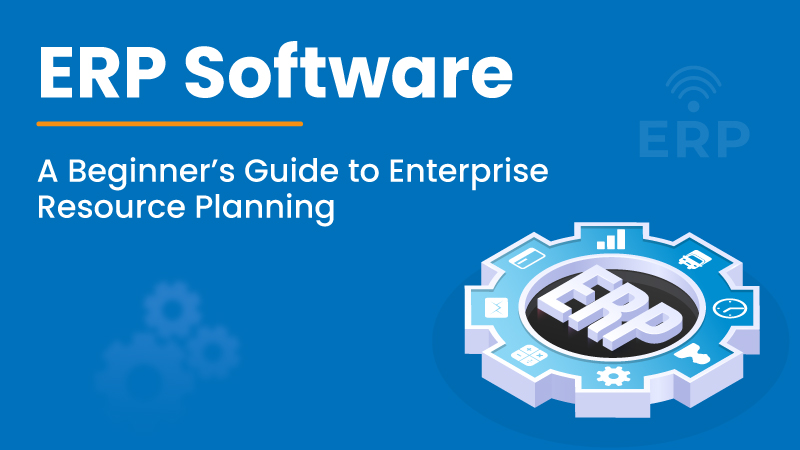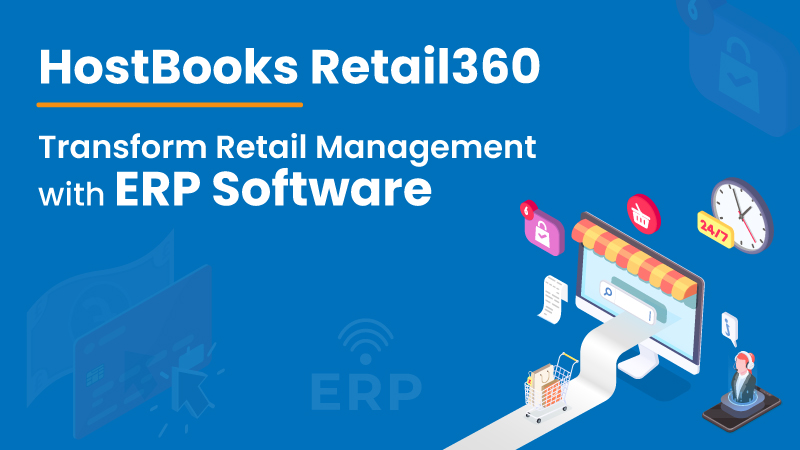Tally Prime VS. Busy VS. HostBooks Accounting Software Comparison

Choosing the right accounting software has always been a challenge for two obvious reasons – the cost of wrong selection is massive and the are too many options out there. There is often a clash between two main categories of accounting solutions: legacy software and the latest accounting software.
Among legacy accounting software, there are two major competitors in the market Tally and Busy. Both has been the pioneer of accounting solution in India. On the other side, HostBooks has been the leading business accounting software among the new-gen accounting solutions. Let’s have a side-by-side comparison between Tally, Busy and HostBooks to find out which one is the best fit for your business.
Tally Prime VS. Busy VS. HostBooks Accounting Software (ERP Summary Chart)
Here is the quick summary chart of comparison between Tally, Busy and HostBooks accounting software.
| Difference | Tally | HostBooks | Busy Accounting Software |
|---|---|---|---|
| Deployment | Cloud based and on premise | Cloud Based | On Premise |
| Security Level | Source Level | Bank Grade | Bank Grade |
| Ease of Use | Text User Interface | Graphical User Interface | Mixed – Text and Graphical |
| Features and Functionality | Accounting, GST, and Payroll | Accounting, Payroll, GST, TDS, and Income Tax | Accounting Only |
| Integration Capabilities | Custom Code Required | Easy Integration | Custom Code Required |
| Excel Bulk Upload | Cumbersome | Easy with Test Import | Cumbersome process |
| Learning Resources | Lots of videos and Tutorials | Enough tutorials on website | Lack of Learning Materials |
| Data Migration and Bulk Upload | Easy from Tally – Tally | Dedicated Support for Migration | Requires Expertise |
| Customer Support | Dedicated Support | Dedicated Support | Dedicated Support |
| Pricing and Value for Money | Expensive | Value for money | Moderate |
Comparison Metrics for Tally Prime, Busy, & HostBooks Accounting Software : How to Compare Accounting Software?
Comparing Tally, Busy and HostBooks is a challenging task because none of them can meet all expectations perfectly. Each business has its unique requirements, workflows, and priorities, making it unlikely to find the perfect solution
However, by carefully evaluating and prioritizing your needs, you can find the accounting software that comes closest to meeting your expectations. Here are a few factors to consider when navigating this complex decision-making process:
- Features and Functionality
- Accessibility and Mobility
- Integration Capabilities
- Data Migration
- Security and Data Protection
- Accuracy and Compliance
- Customer Support, Training and Resources
- Pricing and Value for Money
While comparing HostBooks, Tally and Busy you need to start by identifying your business’s specific accounting needs. Make a list of must-have requirements that are essential for your daily operations. This helps you focus on the core capabilities that are critical for your business success.
Tally VS. Busy VS. HostBooks (Detailed Comparison) 2023
Let’s take a closer look at how Tally, HostBooks and Busy can be compared in each of the following parameters.
Ease of Use
In the context of accounting software, it refers to how user-friendly and intuitive the software is for performing accounting tasks.
- Tally: Tally uses a text-based interface, which may be less visually appealing and intuitive for new learners. It offers keyboard navigation and is efficient for speed and repeated entries. However, it can have a steeper learning curve for beginners.
- Busy Accounting Software: Busy accounting software has a partly text and partly graphical user interface. It also offers keyboard navigation and is favored by accountants. However, it may be less suitable for new learners or self-employed individuals who are not familiar with accounting concepts.
- HostBooks: HostBooks has a graphical user interface that is easy to navigate using both mouse and keyboard. It offers an intuitive and user-friendly experience, making it suitable for new learners. However, it may be slightly more involved for handling repeated entries compared to software like Tally.
Consider the proficiency and experience of your staff or yourself when evaluating ease of use. Tally is preferred by experienced users due to its efficiency with repetitive tasks, while Busy is popular among big businesses. HostBooks provides an easy learning curve and intuitive design, making it user-friendly for beginners.
Features And Functionalities
It refers to the specific capabilities and tools that the software offers to help businesses manage their financial processes effectively.
- Tally: Tally primarily focuses on GST billing, return filing, and accounting functions. It offers comprehensive features to handle various aspects of GST compliance, including invoicing, tax calculations, and generating GST returns.
- Busy Accounting Software: Similar to Tally, Busy accounting software also offers a range of features for GST compliance and accounting. It provides functionalities for GST billing, return filing, and maintaining accurate financial records.
- HostBooks: In addition to handling GST-related functions, HostBooks provides tools for TDS calculation, e-filing of TDS returns, audit and income tax calculations and returns.
While all three software options have core functionalities related to GST compliance and accounting, HostBooks expands its scope to include TDS and income tax management.
Accessibility And Mobility
The ability to access and use accounting software from various devices and locations is important as many businesses operate remotely today.
- Tally: Tally initially had an on-premises version Tally ERP 9, which was installed and operated on local servers only. However, Tally Prime, the latest version, offers both on-premises and cloud-based options. While it doesn’t have smartphone compatibility, it provides flexibility in terms of deployment.
- Busy Accounting Software: Busy accounitng software is primarily an on-premises accounting software. It does not offer remote accessibility or mobile compatibility, limiting its flexibility in terms of accessing accounting data outside of the office environment.
- HostBooks: HostBooks is a completely cloud-based accounting software which can be accessed and operated through web browsers from any device with an internet connection. Being cloud-based, HostBooks allows users to access their accounting data from anywhere, providing mobility and convenience. Additionally, some HostBooks products, like Neo Billing App, are specifically designed for mobile devices, enabling users to manage billing tasks on smartphones.
If remote access and mobile compatibility are important for your business, HostBooks offers the most flexibility with its cloud-based approach and mobile-friendly products. Tally Prime’s dual on-premises and cloud options can also provide a balance between accessibility and traditional deployment. Busy, being primarily on-premises, may have limitations in terms of remote accessibility and mobile usage.
Integration Capabilities

Integration ability allows accounting software to connect and exchange data with external systems such as customer relationship management (CRM) systems, inventory management systems, payment gateways, e-commerce platforms, and more.
- Tally: Tally traditionally lacks robust integration capabilities with third-party software. Integration with other systems or software requires manual data processing or custom development.
- Busy Accounting Software: Similar to Tally, Busy accounting software also have limitations in terms of integration capabilities
- HostBooks: HostBooks allows integration not only with its own suite of products but also with third-party software.
- While Tally and Busy may have limited integration options and may require manual efforts for data transfer, HostBooks offers a more extensive range of integration possibilities, allowing for smoother data flow between different systems and software.
Data Migration

Data migration refers to the process of transferring financial data from one accounting software or system to another. It involves extracting, transforming, and loading data from the source system into the target system, ensuring its accuracy and integrity throughout the migration process.
- Tally: Migrating data within Tally itself is relatively easy, however, migrating data from other accounting software to Tally is complex. Importing and exporting data in bulk involves a cumbersome process, and there is a risk of encountering single point failures.
- Busy Accounting Software Transferring data from external sources, excel or other accounting software to Busy involves complexities and requires technical knowledge.
- HostBooks: HostBooks offers dedicated data migration support. Also, importing data from Excel is made simple with features like test import functionality, which allows users to preview the imported data before finalizing it. However, it’s important to note that since HostBooks is a cloud-based software, sharing data externally may pose challenges.
If you primarily need to migrate data within Tally, it offers a relatively straightforward process. While HostBooks provides dedicated support and easy data import from Excel but might have limitations in terms of external data sharing due to its cloud-based nature.
Security and Data Protection

Data security are the measures and practices put in place to protect financial data, ensure its confidentiality, integrity, and availability, and mitigate the risks of unauthorized access, data breaches, fraud, and other security threats. Here are some key aspects of security in accounting:
- Tally: Tally provides a feature called Tally Vault, which allows users to password-protect their data.
- Busy Accounting Software: Busy also offers only password protection as a security measure.
- HostBooks: HostBooks emphasizes security and data protection by implementing bank-grade encryption protocols. Additionally, HostBooks offers role-based access control, allowing administrators to define specific access permissions.
While Tally and Busy provide basic password protection, HostBooks goes further by incorporating advanced security measures such as bank-grade encryption and role-based access control.
Customer Support and Training
Effective customer support and comprehensive training resources contribute to user satisfaction, improved software adoption, and the successful implementation of accounting software within an organization.
- Tally: Tally provides customer support through various channels, including phone, email, and online chat. Tally also provides online resources such as knowledge base articles, tutorials, and forums to help users find answers to their questions.
- Busy Accounting Software Users can reach out to their support team for assistance with software-related queries or technical issues.
- HostBooks: HostBooks emphasizes customer support and helps through multiple channels. They offer prompt and responsive support to address user queries and technical issues. Besides, HostBooks provide complete training to their new customers.
- Tally: Tally is known to be higher priced compared to any other accounting software. However, it is important to evaluate the features, functionality, and support provided to determine the overall value for money.
- Busy Accounting Software Busy aims to provide a balance between affordability and functionality, offering a range of features suitable for small to medium-sized businesses.
- HostBooks: HostBooks is an affordable accounting software option. It offers competitive pricing plans that cater to the needs of different businesses, including small and medium-sized enterprises. Despite its affordability, HostBooks still provides a comprehensive suite of accounting features and functionalities, making it a value-for-money option for many users.
All this software provides almost equal level of customer support however, Tally lies slightly ahead in terms of resources, user generated content and tutorials.
Tally Prime VS. Busy VS. HostBooks Accounting Software Pricing and Value for Money
It’s important to strike a balance between cost and the functionality and benefits offered when evaluating accounting software based on pricing and value for money.
HostBooks, as an affordable option, can provide a cost-effective solution without compromising essential accounting features.
All in All
HostBooks stands out for its affordability, cloud-based accessibility, and strong emphasis on GST compliance and data security. Its ease of use and integration capabilities make it a suitable option for all types of businesses.
Whereas, Tally is widely recognized for its features, particularly in GST billing and return filing. While it may be higher priced, the extensive functionality and longstanding reputation of Tally make it a suitable choice for businesses seeking comprehensive accounting solutions. Busy, on the other hand, offers a moderately priced option with a balance between affordability and functionality.
FAQs About Accounting Software Selection
1. Which accounting software is best for retail business?
For retail businesses, HostBooks offers a comprehensive solution that includes features specifically designed for the retail industry. Its accounting module, along with inventory management and point of sale (POS) functionalities, makes it a suitable choice for effectively managing retail operations.
2. Which is the best small business accounting software?
Both HostBooks and Busy are top contenders for small businesses due to their affordability, ease of use, and comprehensive features. However, HostBooks provides a user-friendly interface, essential accounting tools, and integration capabilities, making it an ideal choice for small businesses.
3. Do I need accounting software to generate bills?
Yes, accounting software simplifies the billing process by automating invoice generation, tracking payments, and managing customer records. With HostBooks, you can create professional-looking bills efficiently, track outstanding payments, and maintain accurate financial records.
4. I have a retail shop. Which accounting software is best for me?
HostBooks is a highly recommended accounting software for retail businesses. It offers specialized features such as inventory management, purchase order management, point of sale (POS) integration, and GST compliance, all of which are essential for efficient retail operations.
5. Do I need to learn accounting to use accounting software?
While basic knowledge of accounting principles can be helpful, latest generation accounting software like HostBook provides easy-to-use interfaces, guided workflows, and comprehensive support, allowing you to effectively manage your retail business’s finances without extensive accounting knowledge.
6. How is automated accounting software beneficial for me?
An automated accounting software would save time by allowing you to seamlessly create and send personalized invoices, add expenses, and reconcile transactions. In other words, it simplifies your accounting while also that your business data securely stored in the cloud.
7. How does accounting software powered by automation work?
To improve their productivity, cut operational costs, and gain a competitive edge, many businesses are automating their manual, repetitive accounting processes.
8. What is the client management portal?
The client management portal enables you to access everything needed to effortlessly manage business finances from a single location. With HostBooks cloud accounting software, you can access multiple applications (like Accounts, GST, E-way Bill, and TDS etc.), businesses or branch locations using just one set of login credentials.
9. What is cloud accounting and how does it work?
Cloud accounting software allows businesses to access and manage their finances through the internet. As your financial data is securely stored in the cloud, you can easily access your information from any device with an internet connection.
10. What is fixed asset management?
It is a process of maintaining and tracking a business’s immovable assets and equipment, such as furniture, computers, office supplies, vehicles, and more. The best-fixed asset management software enables you to improve your operational efficiency and lower costs when it comes to managing fixed assets.

Try HostBooks
SuperApp Today
Create a free account to get access and start
creating something amazing right now!
















